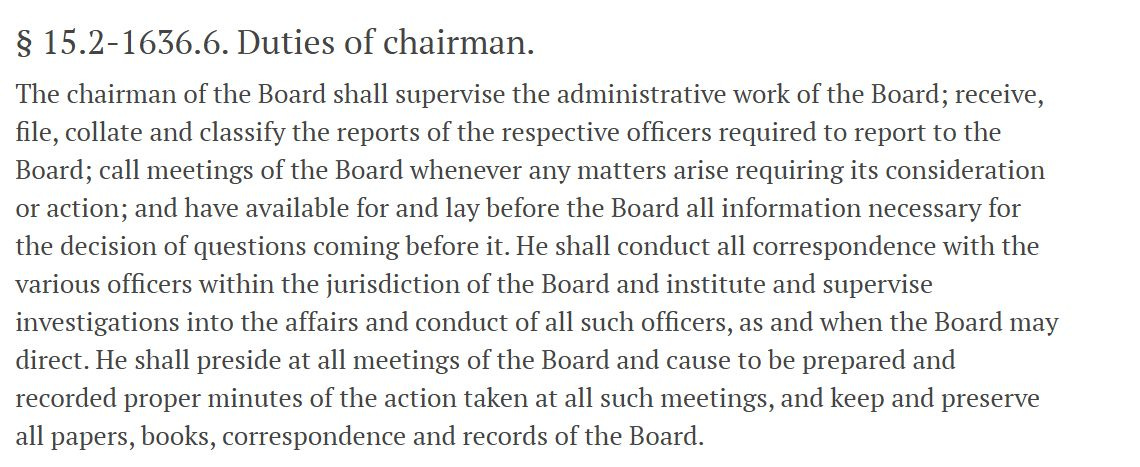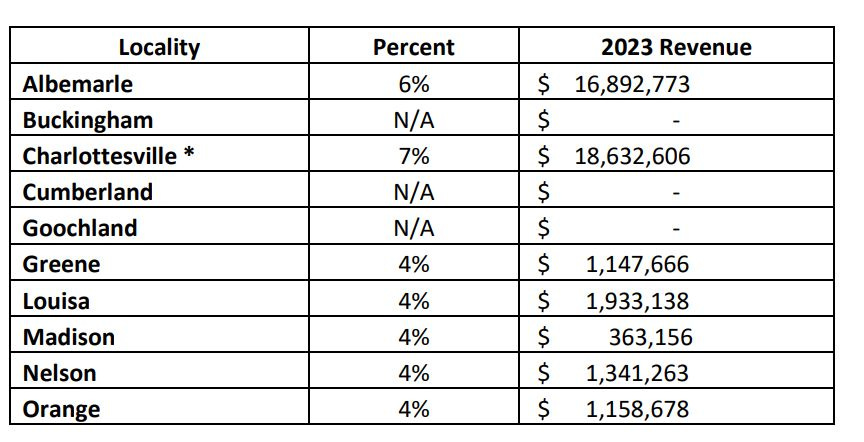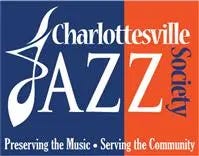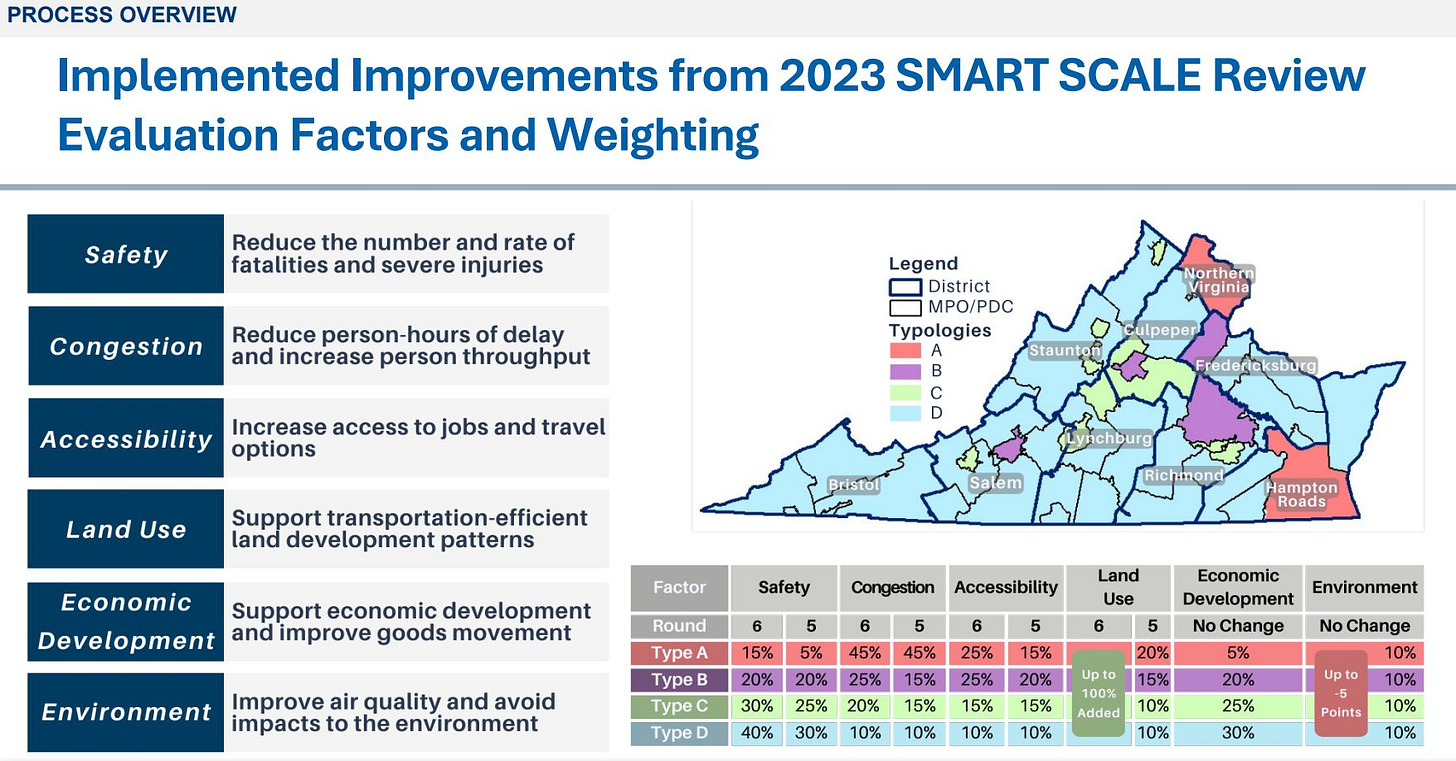January 14, 2025: Fluvanna Supervisors willing to explore meals tax to diversify county revenue
Plus: There were eight applications for Albemarle transportation projects in the latest Smart Scale Round and only one is recommended for funding
One of the sources of inspiration for these opening paragraphs of Charlottesville Community Engagement is the official calendar of holidays kept by the Virginia General Assembly. Today, January 14 is both Pongal Day as well as Makar Sankranti Day. Both are festivals of thanksgiving celebrated in various parts of India, and I hereby pledge to have an actual story about this one year from today. For now, I’m Sean Tubbs, glad to always learn something new about the place where I live.
In today’s installment:
Elected officials in both Fluvanna County and Louisa County keep the same chairs for 2025
Fluvanna County Supervisors indicate support to explore levying of a meals tax
The Commonwealth of Virginia will have less funding available in this year’s Smart Scale allocation, and the initial recommendations show only one Albemarle project is recommended to proceed
First shout-out: JMRL Friends of the Library reports another record Book Sale
I suspect many readers of Charlottesville Community Engagement are avid readers and are preparing for a haul of books this holiday season. If you want to make room, consider donating some of your older material to the Friends of the Jefferson Madison Regional Library for their Spring Book Sale!
The recent fall sale at Albemarle Square Shopping Center was a success as community members came out and spent $166,367! That set a new record!
By donating books, games, CDs and other items to Friend of JMRL, you’ll help them raise funds for all sorts of ways to support the Jefferson-Madison Regional Library
Children and adults at all branches may enjoy programs to enrich their learning
The various collections of the library system may be enhanced
Library branches may receive donations and funding assistance in emergencies
Book donations will be accepted at the Gordon Avenue branch, lower level lobby entrance during Gordon Avenue branch operating hours!
For more information, visit the Friends of JMRL website!
Fluvanna and Louisa both retain leadership slate for 2025
Under Virginia law, boards of supervisors are required each year to select leaders to run meetings and provide other duties. Last week, the Albemarle Board of Supervisors opted to retain Jim Andrews as chair and Diantha McKeel as vice chair for a second year.
There were also leadership selections last week in other localities in the Thomas Jefferson Planning District Commission.
On January 7, the seven Supervisors in Louisa County voted in Duane Adams to be their chair. This is the third year in a row for the Mineral District representative. They did so in an organizational meeting held before they went into a closed session. As with last year, Tommy Barlow of the Mountain Road District was named as vice chair.
Adams was first elected in 2017 with 55.5 percent of the 1,692 votes cast. He had no opposition in 2021.
Adams’ latest four-year term ends on December 31, as do the terms of Mountain Road District Supervisor Tommy Barlow, Green Springs District Supervisor Rachel Jones, and Patrick Henry District Supervisor Fitzgerald Barnes.
For the second year in a row, the five members of the Fluvanna County Board of Supervisors selected Cunningham District Supervisor Christoper Fairchild to serve as chair. However, Rivanna District Supervisor Tony O’Brien was nominated as vice chair, replacing Mike Sheridan of the Columbia District.
All three of those seats expire at the end of the year and are up for election and candidates have not yet announced their plans for the year. If he decides to run, Fairchild will be seeking a second term. O’Brien was first elected in 2013, a year in which he had opposition. The Rivanna District seat was also contested in 2017, but O’Brien was unopposed in 2021.
Sheridan was also first elected in 2013 in a contested race, but was unopposed in both 2017 and 2021.
Next up is Nelson County and Greene County. I’ll have stories from those localities in a future edition of the newsletter. Charlottesville City Council has not met yet this year but will not pick a new mayor until next January.

Fluvanna Supervisors signal interest in pursuit of meals tax
Localities in Virginia have several options to bring in revenue to support government functions such as an increasing need to pay for the cost of fire and rescue service. At their first meeting of 2025, the Fluvanna Board of Supervisors had a briefing on the potential of one tax that is now easier for counties to levy.
“Local taxing authority was passed by the General Assembly that allows counties to now implement a meals tax without a referendum, effective July 1, 2020,” said Fluvanna County Administrator Eric Dahl.
However, Fluvanna County had to wait a few years because a referendum in 2018 to levy a meals tax was rejected by voters with an overwhelming majority.
Dahl said conservative estimates have calculated Fluvanna could bring in between $300,000 and $600,000 a year, the equivalent of one to two cents of real estate tax revenue. The rate could be as high as six percent of the total bill.
Albemarle County charges six percent and brought in $16.82 million in revenue in 2023. Charlottesville is a city that does not have a cap on the meals tax rate and brought in $18.63 million in revenue in 2023 based on a seven percent rate. Greene, Louisa, and Nelson counties all have a four percent rate and brought in significantly less revenue in the million dollar range.
Dahl acknowledged there is not a lot of restaurant activity in Fluvanna as the county lacks a commercial strip like U.S. 29 in Greene County or the commercial activity at Zion Crossroads. During the discussion Supervisors talked about the potential the new Wawa would have on bringing in revenue.
One member of the Board was concerned about over-taxing residents.
“The reality is let's say with the exception of Wawa, the huge mass of the people that are taxed to this are going to be the citizens of Fluvanna,” said Supervisor Christoper Fairchild, adding it was not likely the board would offset the cost by lowering another tax.
Another Supervisor said consideration of the tax would be another way of diversifying the revenue available to Fluvanna, potentially allowing a decrease in one of them.
“You're putting more tools in your toolbox that you can use to work your tax rate out,” said Supervisor Mike Sheridan. “When you only have two tax levers to pull if you need to increase or decrease, it's on one of those two, isn't it better to have three or four? And personal property and real estate, 100 percent tax Fluvanna citizens. This one will potentially tax people who are not Fluvanna citizens.”
The discussion touched upon a philosophical argument that is so common in American democracy. What are the point of taxes, and who should pay them? Does government just increase revenue for the sake of it, or are there needs to be covered?
Supervisor Tony O’Brien said whatever money is generated will go to pay for core services.
“You're going to spend it if you're going to meet the needs of the county to deliver the core services,” O’Brien said. “The question is, who's participating in raising those revenues? At the end of the day, I would rather see a portion of that revenue being raised by people aren’t from the county, and I'd rather see a portion of that being raised by people that maybe are in the county but don't share the tax burden that the homeowner shares.”
Supervisors were told that they could craft an ordinance to direct revenues to a specific purpose such as school construction. A public hearing would be required, but not a referendum. The board wanted more information on who might actually pay the tax and how much would it cost to administer. Commissioner of Revenue Andrew Sheridan said he would at least a year of preparation time.
Dahl said an ordinance is already drafted should the Board want to proceed. There were at least three nods in support of moving forward and the item will return in February.
Second-shout out: Charlottesville Jazz Society Annual Report
As 2025 truly gets underway, the Charlottesville Jazz Society continues to look back at a 2024 in which the audience for the artform kept growing with more people joining the twice-monthly newsletter that lets people know what’s happening around the area.
The CJS has been active since 1987 and here are some highlights from this year:
CJS continued a long partnership with WTJU as well as closer ties with the Front Porch, Bunker Bistro, Belmont Arts Collaborative, Unity of Charlottesville and Vault Virginia.
CJS continued to host a Local Jazz Spotlight Series at Miller’s on the last Sunday of each month with including artists Royce Campbell, Drex Weaver, Jeff Massanarri and the Sweet Potatoes.
They continued a concert series this year with killer shows including harmonica master Howard Levy and C’ville native Emily Kuhn’s excellent group from Chicago. They featured world music and jazz fusion from Lynn Riley’s band and Sharon Katz from South Africa and even hosted a free jazz appreciation month party featuring the Brazilian jazz sounds of Também.
The Hotel Heroes program continues to receive support to help pay for lodging for out-of-town performers, and the English Inn is thanked for providing discounted rooms.
CJS could not exist without your generosity.
Only one Albemarle project recommended for funding in Smart Scale’s sixth round
For nearly ten years, the Virginia Department of Transportation has used a ranking system called Smart Scale to review potential projects.
“Smart Scale is a data driven outcome based prioritization process,” said Brooke Jackson, the program’s manager. “It was put in place to improve the transparency and accountability of project selection and stabilizing the six year improvement program.”
The cycle runs every two years and a draft set of recommendations were announced this afternoon at the January meeting of the Commonwealth Transportation Board.
This year there is less funding available for the program than previous years in part because of an increasing need to pay for maintenance as well as costly repairs due to Hurricane Helene as well as this year’s winter storm.
“Finishing fiscal year 2025 is uncertain based on activity to date for VDOT. And so we need to monitor our spending and any additional events between now and the March time frame, hopefully when spring comes, and understand the implications to the department,” said Laura Farmer, VDOT’s Chief Financial Officer.
Transportation Secretary Shep Miller was a member of the CTB when the program first began after being mandated by legislation in the 2014 General Assembly.
“One thing that we've done substantially in terms of improvement is to really work to get quality applications in,” Miller said. “As you know, as we saw last year and before that, there were too many applications coming, some of which, too many of which were not ready.”
For instance, the City of Charlottesville had been very successful in obtaining funds in earlier rounds but has yet to begin construction on any of the projects. Several have now been canceled and Charlottesville did not apply for new funds in Round 5 or Round 6.
Jackson said there is a large cost-benefit analysis component to the work and leverage from localities, regional entities, and other sources can improve a project’s score. Each project is reviewed under six criteria that are weighted according to CTB policy. This time around, 45 percent of submitted projects were ones that had previously been reviewed. Another unofficial factor in Round 6 is a locality’s success rate at bringing projects to construction.
There were 325 pre-applications in Round 6 with a total of 277 applications, 270 of which were scored. That’s down from Round 5 when 490 pre-applications resulted in 413 applications.
“This round we have recommended 53 projects for funding and the total funding requested this round was $8.2 billion,” Jackson said.
Jackson noted that this year the total amount of leverage offered is about ten percent, a number Miller said was much lower than he would like.
The Culpeper District is currently slated to receive $68 million through the district grant program. There’s a second pool of funding available for high priority projects.
There were 24 applications from the Culpeper District and four have been recommended for funding. Only one of these is in the Charlottesville area and that is a $36.4 million project to make several improvements on U.S. 250 at Pantops, all funded though the high priority project pool. That came out of one of VDOT’s pipeline studies
Projects that have not made the initial cut include improvements at Old Trail Drive and U.S. 250 in Crozet, a restricted crossing U-turn at U.S. 29 and Plank Road, and projects submitted to alter the Barracks Road corridor between U.S. 250 and Emmet Street. Other Albemarle-centric projects not funded are a double-roundabout at the intersection of Rio Road East, Northfield, and Old Brook and conversion of Interstate 64’s interchange at Fifth Street Extended into a diamond interchange.
Nelson County is within VDOT’s Lynchburg District and a project to create a roundabout at Route 151 and Tanbark Drive is slated to receive nearly $12.7 million.
The scores will next go before the CTB in April for another review before a vote in June.
Reading material:
Two buildings hit in shooting, nobody injured, Charlottesville Police say, 29News WVIR, Forrest Holt, January 12, 2025
Gunfire damages 2 residences off JPA in Charlottesville, Charlottesville Daily Progress (paywall), January 12, 2025
ACPD investigating fatal crash involving pedestrian, CBS19, January 13, 2025
Youngkin: Land-use rights regarding data centers, solar should remain with localities, Elizabeth Beyer, Cardinal News, January 14, 2025
Charlottesville student data exposed in PowerSchool hack, Emily Hemphill, Charlottesville Daily Progress (paywall), January 14, 2025
The end of #792 has approached and has arrived so goodbye!
Tomorrow I’ll have a call with the crew at Broadstreet, a company I’ve hired to help me manage advertisements that will be placed on Information Charlottesville. In theory, this will help bring in revenue, and I’m hopeful to keep experimenting with such things. It’s all an experiment, and experiments with stable revenue are more likely to keep going.
Traffic on infocville.com is much lower than Substack, but the articles there are easier to find and Wordpress allows advertising. Substack does not, and Substack keeps inventing new bells and whistles that I don’t understand. I don’t plan on moving away at this point, but the goal is to one day have a unified platform.
So I’m looking for anyone who might like to experiment with a low-cost ad and before tomorrow’s call I have to come up with some ideas. I’m excited to try something new, as I went to a Broadstreet event at the LION conference in September and really appreciated the energy of the company’s leader.
If you are interested and have an advertising budget to play around with, I will do what I can to bring attention to what you have to sell. I’ve been very resistant to ads, but I’m also very resistant to becoming a non-profit for reasons you may know.
In any case, I’m looking forward to this latest chapter and continuing to tell you about it in this bottom section. I was very fortunate to have one long-running sponsor and now it’s time to pursue something new.
Gosh what excitement!
Until then, thank you. Here’s a song I used to play for when I had children:








I think ghost.io allows integration with ads and newsletter support. Though, I think the setup may be trickier than substack or WordPress
re: "Projects that have not made the initial cut include improvements at Old Trail Drive and U.S. 250 in Crozet, "
This is referencing the roundabout at Old Trail Drive & 250?